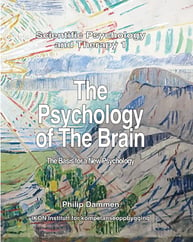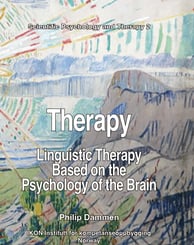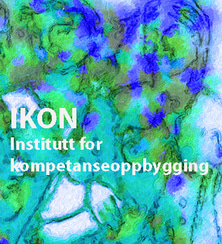Psychology of the Brain and Linguistic Brain Therapy
The websites are developing
These sites presents the brain psychological understanding of mental disorders and how they can be changed through linguistic brain therapy. The content is derived from research on mental disorders and treatment, and from two books: "The Psychology of the Brain: The Basis for a New Psychology" and "Linguistic Brain Therapy Based on Knowledge of the Brain's Psychology."
"The Psychology of the Brain" is about what happens mentally inside the head when developing or getting rid of mental disorders. It describes the brain's mental properties, the psychological material, and the mental processes that anchor and trigger mental states and disorders. The psychology of the brain focuses on how mental states and disorders are mentally and biologically constructed.
Target Groups
The target groups for the book on the brain's psychology include psychologists, psychiatrists, physicians, healthcare workers, and others who seek a scientific foundation for their work with children, adolescents, and adults. It is also of interest to clients who want to manage their mental disorders, to family members who want to help their loved ones, and to researchers studying mental states, disorders, and psychological change.
Why is Knowledge of the Brain's Psychology Necessary?
The book on the brain's psychology is essential because it offers solutions to the scientific and therapeutic challenges that psychology and psychiatry have faced for over a hundred years. It is also crucial because it describes the mental resources clients possess and how they can be used in treatment, even if these have led to mental disorders. The psychology of the brain is also necessary because it enables the development of precise diagnoses that immediately indicate the appropriate treatment.The book provides a long-sought scientifically sound knowledge base for psychology and psychiatry.
Linguistic Brain Therapy
Linguistic brain therapy is a method for treating psychological distress based on the internal psychological material that causes the distress. It stems from knowledge of brain psychology, which is a result of research on psychological material and the mental processes that cause psychological distress and mental states.
Liguistic brain therapy is important because it can lead to better results in therapy, faster and more secure treatments, fewer burdens for clients, family members, and healthcare personnel, and a more cost-effective treatment.
Linguistic brain therapy includes methods for changing the psychological material that causes psychological distress, and also the mental processes that lead to psychological improvements and the ability to master challenges in life.
Questions beeing answered by the books on the pscyhology of the brain and linguistc brain therapy
Questions that will be answered through the psychology of brain
How are psychological distresses mentally constructed? What are the scientific shortcomings and challenges of psychology and psychiatry?
How many psychological distresses are there?
What are the similarities between psychological distresses and the general mental state?
What are the similarities between different psychological distresses?
What are the causes of psychologically anchored distresses?
What is the difference between the psychology of the brain and other psychology and psychiatry?
Questions that will be answered through inggustic brain Therapy
What is linguistic brain therapy, LBT?
How can psychological distress be treated predictably and controllably based on knowledge of brain psychology?
What happens mentally when clients improve from treatment?
Which psychological distresses can be treated based on knowledge of brain psychology?




We have to rewrite the Psychology 1


Current psychological knowledge about mental disorders is only partially grounded in science. We have extensive understanding of mental disorders from an external perspective, but lack precise knowledge about the internal mental processes that cause and contribute to these ailments.
To develop a sufficient scientific understanding of mental disorders and their treatment, research must shift its focus from external events and experiences to the psychological material at the core of these disorders. This requires a transition in scientific approach, from external events and information to the mental experiences occurring within the mind, in order to develop deeper and more scientific sustainable understanding of the reason for mental disorders and the processes of mental change.
The advancement of scientific knowledge about mental disorders and their treatment is only achievable through the use of words.
Despite this, psyclogists and therapist often do a grate job with clients. We do not always need sufiiccient scientific knowledge to treat mental disorders, but sufficient scientific knowledge may help when wedo not get the results we want in therapy.
You can test your scientific knowledge by attempting to solve this riddle:
What happens inside the mental brain when a client does not achieve mental change as a result of your treatment, even though you have succeeded more than 100 times with the same method on other clients?
If you can provide a precise answer to this riddle, you demonstrate a deep understanding of mental disorders. If not, you're in good company; like many other scientists, you may discover a gap in your knowledge. The insights offered in books on the psychology of the brain and linguistic brain therapy might surprise you."
The results are almost unbelievable. In just one or two consultations, profound positive changes occur... This happens practically without exception. Professor Aa. K


philipdammen4@gmail.com
(+47) 94294327
Socials
Contact
Philip Dammen, Dr. Philos
Founder of IKON / researcher, therapist, and emeritus assistant professor in pedagogy at the Norwegian Academy of Music


